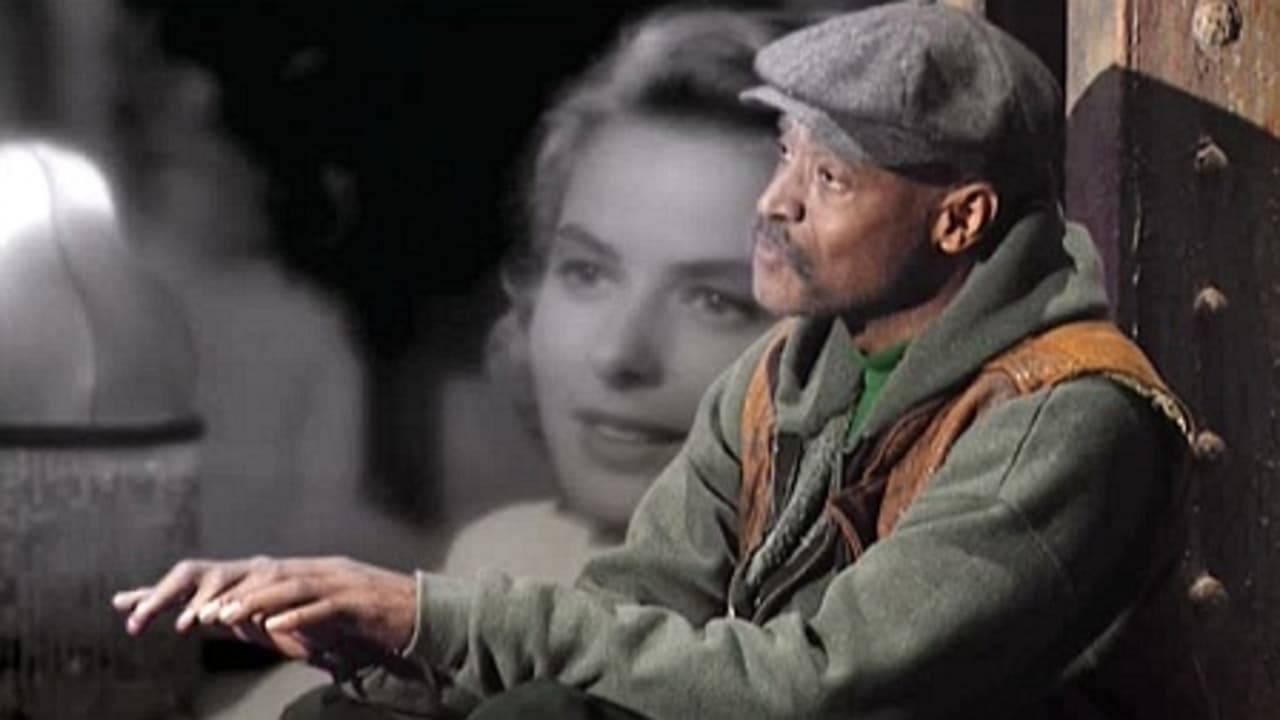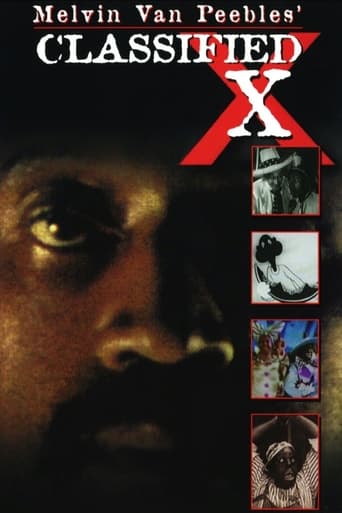



Better Late Then Never
Simple and well acted, it has tension enough to knot the stomach.
View MoreIt's the kind of movie you'll want to see a second time with someone who hasn't seen it yet, to remember what it was like to watch it for the first time.
View MoreOne of the best movies of the year! Incredible from the beginning to the end.
View MoreMelvin Van Peebles came to moviegoers' attention when he released "Sweet Sweetback's Baadasssss Song", in which he played a hustler who has to go on the lam after killing some cops who were attacking a Black Panther. The movie was widely seen as the first frank look at what African-Americans wanted to say about their experiences, as opposed to what would make whites comfortable. Van Peebles released the movie with the tagline RATED X BY AN ALL-WHITE JURY.With "Classified X" Van Peebles takes a look at the portrayals of African-Americans in movies since the birth of cinema. Lest you think that the racist depictions started with "The Birth of a Nation", Van Peebles includes scenes from Thomas Edison's movies which use blacks as the incompetent comic relief. From the portrayals of savages in loin cloths to modern movies in which blacks raise the consciousness of a white hero, Van Peebles has ample criticism of the depictions.It's important to understand that this is part of US history. Van Peebles notes that the white power structure basically convinced blacks that these depictions were OK. I would've liked to hear Van Peebles's opinion of movies like "Buck and the Preacher". He noted that theaters now siphon off money from movies like "Malcolm X". I would like to see an update to see what Van Peebles's opinion of movies since 1998 that have focused on race relations, although I can guess what he would say about some movies. In the end, I recommend this one.
View MoreClassified X (1998) *** (out of 4) Melvin Van Peebles hosts and narrates this 50-minute documentary that takes a look at the history of blacks in cinema. I'm going to start off by saying that I really wish someone would come along and make a three, four or even five hour documentary about this subject because there's so much to cover and there's just so little time here that you can't help but feel that so much is missing. Overall, this is a good introduction to the issues that raged in cinema. Of course, THE BIRTH OF A NATION is brought up but the documentary does a good job at noting that this wasn't the first film to show racist images. From here we see how blacks were played by whites, were given roles of maids or slaves and how things started to change after WWII. Again, this documentary is way too short because it often hits on a subject that you wish would be explored more but instead we just jump to the next scene. There are a few issues I did have with the movie including how Melvin Van Peebles said that he never saw anyone playing the maid in his neighborhood so the movies were making this image up. Well, with the recent excellent film THE HELP, we learn that that type of image was going on during these times and I'm guessing Van Peebles' South Chicago neighborhood just didn't have some of these Southern images. The documentary also shines a light on "black cinema" that was going on in the 20s and 30s but it points out that these films too were often full of racist stereotypes. One strange thing is that Sidney Poitier's name never comes up yet the film does slam movies like THE DEFIANT ONES and GUESS WHO'S COMING TO DINNER. We finally get to the blaxploitation pictures, which is showcased as people black artists striking back but throughout the entire documentary there's nothing but talk about equality yet these films were just as racist towards whites that all the other films were against blacks. By the end of the film Van Peebles says that nothing has changed from the start of cinema until today. Everyone in Hollywood are racist and they're the ones with the money and the power to make movies.
View MoreI've meant to watch this documentary for quite some time, primarily because Spike Lee cited it as a major influence on his own narrative film, Bamboozled. Classified X is good, especially in its presentation of 100 years of movie representation of African Americans. I especially like its useful designation of periods in film history (the decades of independent black cinema, the "new Negro" period, the "no Negro" period, etc.).There are a few times when I wish the film provided more careful explanation of how the discrimination against African Americans generally and African American films specifically happens. For example, near the end of the film, Van Peebles says that, with movies like Malcolm X and Panther, theaters siphon off the profits at the box office. I'd like to know what that means. Is it a problem of how many screens the movies are shown on? Or how many screens are hogged up by movies that the studios support more wholeheartedly? I plan to use this movie in a college course about race in the mass media, and I think it will be provocative and educational, but the occasional lack of detailed explanation will be a slight stumbling block for my mostly white, mostly middle class students (as it is at least a minor disappointment for white, middle class me!). Perhaps this movie will simply be a bold starting point for a longer and sometimes difficult learning journey.
View MoreMelvin Van Peebles is never short on opinions. I'd find it a lot easier to accept them if he weren't responsible for the vastly overrated Sweet Sweetback's Baadassss Song (forgive me if I omitted any 'a's or 's's from the title) and cinematic atrocities such as the racist, sexist, and plain awful Identity Crisis. Nonetheless, this is a fascinating and frequently dead on documentary about Hollywood's treatment of African American filmmakers.
View More